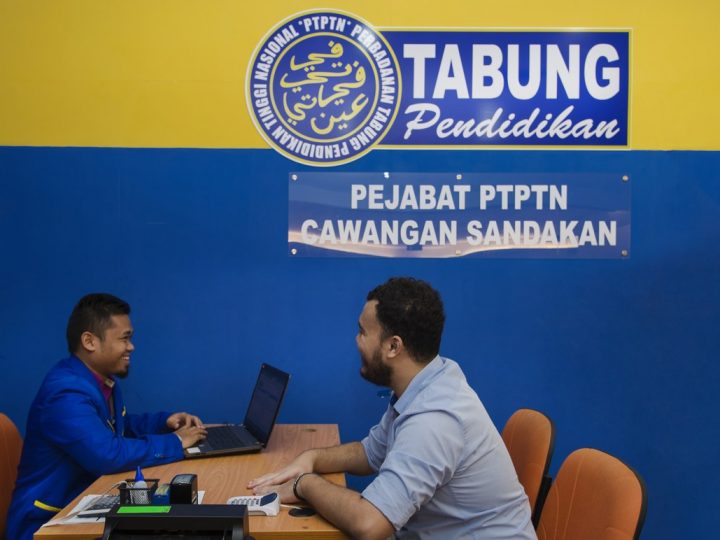Puchong Housewife Planned to Run Over Non-Muslim Voters with Car, Blow Up Places of Worship
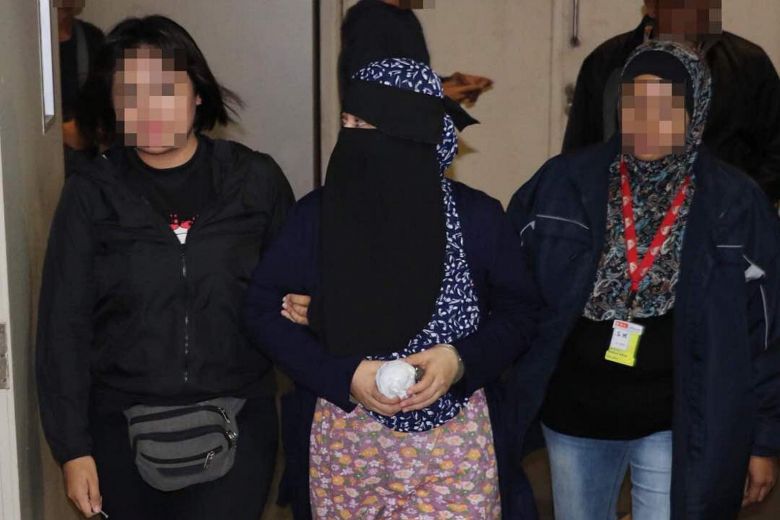 Thirsty for JUICE content? Quench your cravings on our Instagram, TikTok and WhatsApp
Thirsty for JUICE content? Quench your cravings on our Instagram, TikTok and WhatsApp
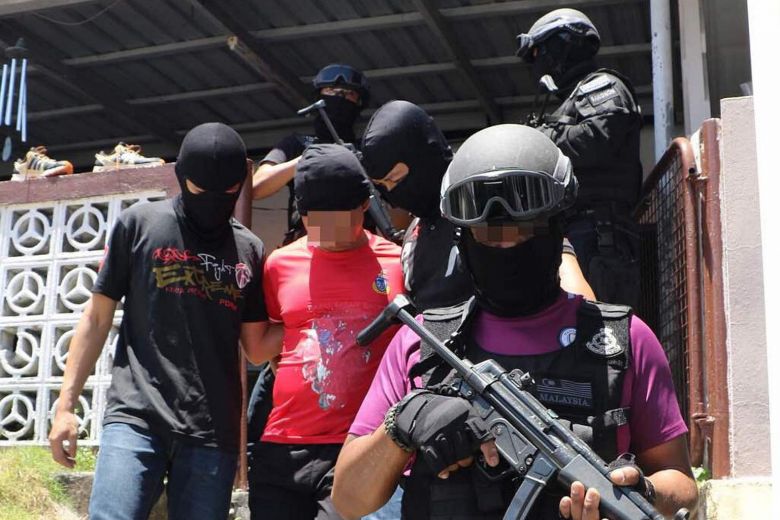
IS-initiated terrorist attacks might be getting closer to home. As reported by The Malay Mail, cops have nabbed 15 terror suspects in Malaysia this year alone. The various attacks plotted by the suspects included a plan to ram into non-Muslim voters during GE14 with a car, and to fire-bomb non-Muslim worship places, Inspector-General of Police (IGP) Tan Sri Mohamad Fuzi Harun said today.
Among the 15 suspects nabbed was a 17 year old secondary school student who planned to carry out attacks as a “lone wolf” using molotov cocktails on non-Muslim entertainment outlets as well as churches and Hindu temples in Kuala Lumpur.
The 17-year old who was arrested on April 20 in Petaling Jaya, Selangor had created six molotov cocktails and tested one of the firebombs in an open area around Damansara Damai in the Selangor suburb.
He was also said to have scouted and recorded the locations of his firebombing targets.
“The suspect had also recorded and uploaded a warning video in three WhatsApp groups and one Telegram group of the Daesh (Islamic State) group. The video was uploaded about an hour before the suspect was caught,” the IGP said in a statement.

In what appeared to be an attempt to shadow IS attack tactics in Europe and America, a Malaysian housewife aged 51 was arrested on May 9 in Puchong, Selangor over her plans to “launch attacks by using a car to hit non-Muslim voters at polling centres during the 14th General Election,” Fuzi said before adding, “Besides that, the suspect also planned to hit non-Muslim worship places using a car carrying gas cylinders as explosives.”
PDRM Special Branch Counter-Terrorism Division nabbed the 15 suspects between March 27 to May 9–part of a series of operations in Kuala Lumpur, Selangor, Johor, Kelantan, and Sabah.
Six Malaysians, two Filipinos with permanent resident status in Malaysia, a married couple from a country in North Africa, a Bangladeshi and four Filipinos were arrested as terror suspects.
Two out of the four wanted for suspected involvement in alleged plots to attack non-Muslim houses of worship as well as to abduct and kill policemen were successfully caught in a series of arrest according to the IGP.
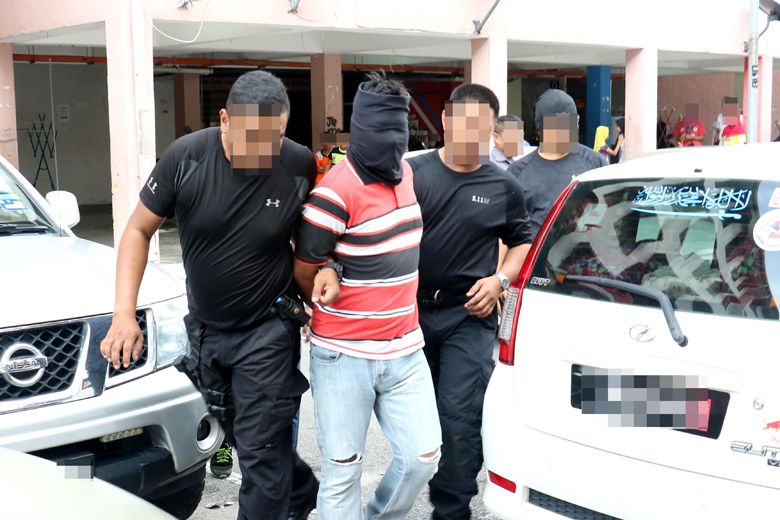
The duo are Nor Farkhan Mohd Isa, who was finalising plans to escape to a neighbouring country but was arrested on April 20 in Johor Baru, and Muhammad Faizal Muhamad Hanafi, who surrendered at the Meranti police station in Pasir Mas, Kelantan on April 23. The two other suspects remain at large.
A 41-year old Bangladeshi who owned a restaurant in Bukit Bintang, Kuala Lumpur was arrested on April 2 in the capital city for suspected involvement in smuggling weapons for the use of international terrorists and terrorists listed under Interpol’s Red Notice.
Meanwhile, police in Sabah had arrested a Malaysian and the six Filipinos, age between 22 to 49, on April 24 and April 26. Fuzi added that this terror cell was planning to collect firearms in Sabah to wage a “jihad” in Marawi City in the Philippines.
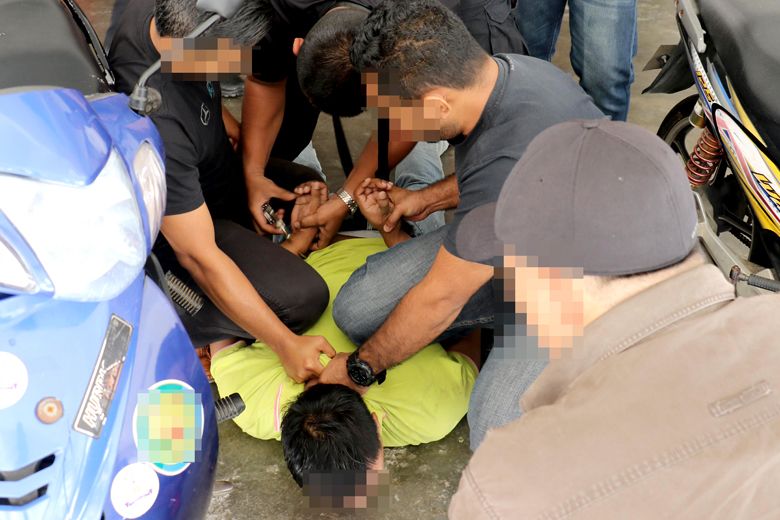
Another 33-year old Malaysian, who previously worked as a cleaner in one of Selangor’s local councils, was turned over to the local police by Turkish authorities on January 31 when the suspect tried to slip into Syria via Turkey, to join IS. The suspect was deported from Turkey and subsequently arrested on March 27 at the Kuala Lumpur International Airport.
As for the married couple who are citizens of a North African country, age 22 and 25, Fuzi said they were on the wanted list due to suspected participation in the IS group.
The couple slipped into Malaysia on March 16 while on transit to a third country, but were arrested by Malaysian police on April 2 and deported back to their home country on April 14.
The Bangladeshi and North African couple were arrested for offences under the Immigration Act 1959/63.
The Malaysians and Filipinos including those with PR status were arrested for suspected offences under the Penal Code’s Chapter VIA covering offences relating to terrorism, and will be probed accordingly to the Security Offences (Special Measures) Act 2012.
For more news, click here.


 Get Audio+
Get Audio+ Hot FM
Hot FM Kool 101
Kool 101 Eight FM
Eight FM Fly FM
Fly FM Molek FM
Molek FM